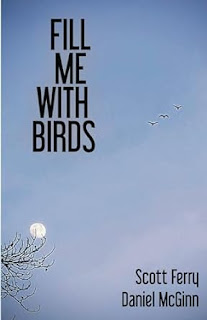New review for "Faller" avalaible free on
www.sabneraznik.com
"Faller" by
Sabne Raznik
These fictional poems from Raznik come with a ‘trigger warning’ 20 years after the 9/11 Twin Towers Tragedy in New York. The Photo of “The Falling Man” is referenced along with those of the others who died. Raznik says ‘I borrowed a word from the sport of steeplechasing, one that I feel is more accurate, fully inclusive, and carries no stigma: Fallers.’
Her hyper-delicate, hyper-sensitized material is red flagged thus: ‘Nor is it meant to cause pain to anyone who lost loved ones that day. Nor is it meant to trigger anyone who battles depression and suicidal ideation’ […] ‘this book is a personal psychological purging.’
Impossible to not engage in some give-away of content within FALLER by sampling lines at random. There is anonymity held to, in that those who are among the Faller(s) and falling 'are' in flights of time, speed, rapidity and fleeting reality which makes this a fast-forward plunge with the words, it cannot but be: language falling into or onto where?
This depends on your own personal reading as to what place, space or time you arrive 'within' reaching the last line. Here are clusters of word-scape that fell out as this review aspect-wheeled through the lines of Sabne Raznik in FALLER.
The urgent poems are stark as in:
‘I remember reading in school about
The Triangle Shirtwaist Factory Fire,
How some jumped to their death
Rather than burn since there was
No way out.’
‘When I land, they’ll be precious little left
More than an imprint in the sidewalk.
Hope I don’t hit anyone below…’
‘Like we were standing inside the sun.
So much paper around me, like snow.
I am snow now.’
‘Do you remember, little brother, how we use to
Drop water balloons off the fire escape?
Count how long they took to fall?
How we tried to film impact and slow down the tape?
Our science projects?
It’s like that.’
Raznik has also released a collection of artworks Renaissance: Visual Art 2005 - 2019. She founded and co-edits AvantAppal(achia) ezine and believes herself to be a supranational poet, in that she feels the arts transcend manmade boundaries.
- Review of Sabne Raznik FALLER. © Kevin Kiely., Poet, Critic, Author; PhD (UCD) in the Patronage of Poetry at the Edward Woodberry Poetry Room, Harvard University; W. J. Fulbright Scholar in Poetry, Washington (DC); M. Phil., in Poetry, Trinity College (Dublin); Hon. Fellow in Writing., University of Iowa; Patrick Kavanagh Fellowship Award in Poetry; Bisto Award Winner.
Recent Publications include: ‘Stratford-upon-Shakespeare and other Lies’ AND 'The Principles of Poetry DI + ID = Ѱ Psi' Books available on AMAZON.








